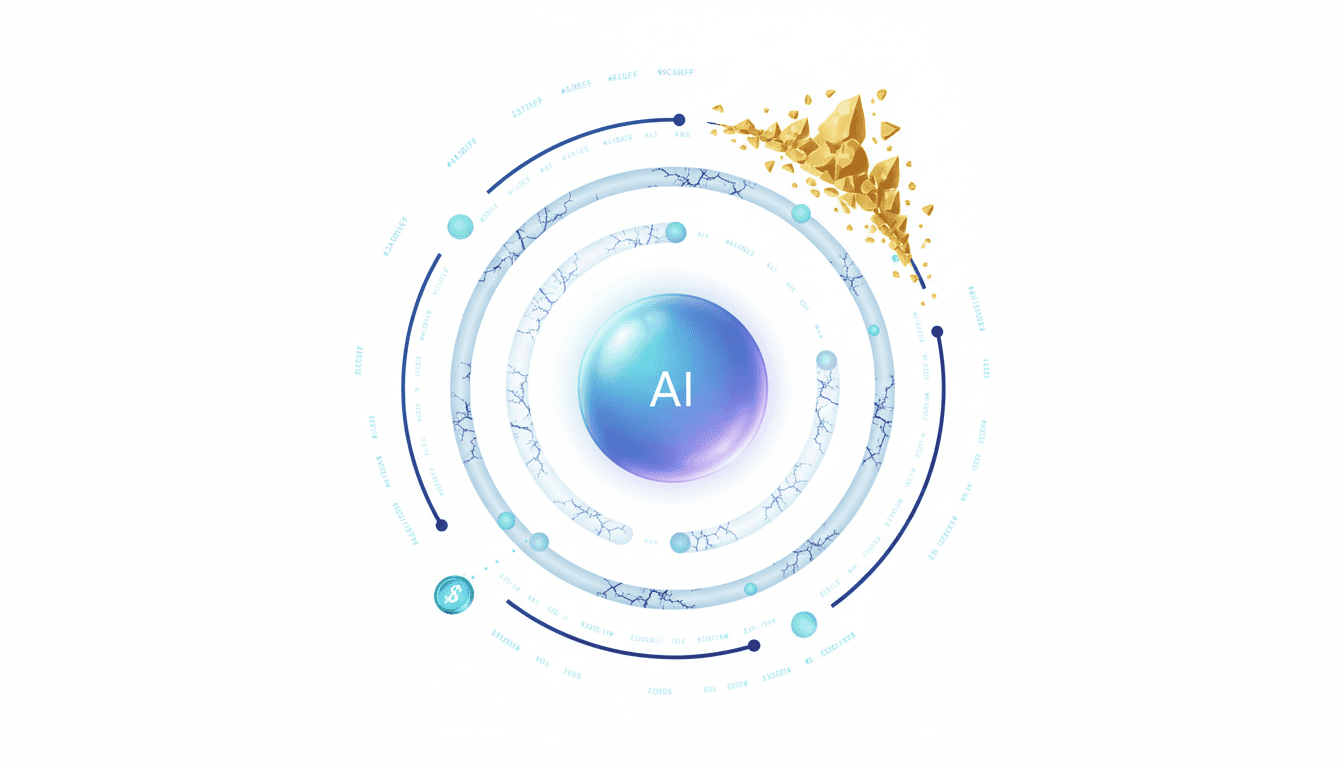Google Maps Integrates Gemini AI for Smart Navigation in India

⚡ Quick Take
Have you ever wished your navigation app could just... get you, without all the fumbling for commands? Google is transforming Google Maps from a static routing tool into a conversational, predictive co-pilot by integrating its Gemini AI, and it's using India's complex mobility landscape as the ultimate testbed. This move isn't just about smarter directions; it's a live-fire exercise in deploying large-scale, hyper-local AI that learns from one of the world's most challenging environments, setting a new standard for what an intelligent navigation service can be.
Summary: Google is integrating its Gemini AI model into the Google Maps app for users in India. The update introduces a hands-free, conversational assistant for navigation, provides personalized route suggestions based on real-time factors like weather and local events, and surfaces proactive safety alerts for hazards on the road.
What happened: Drivers in India can now interact with Maps using natural language, asking complex questions without taking their hands off the wheel. Gemini's integration powers more context-aware routing decisions and provides preemptive information, like warnings about accident-prone zones, turning the app into a more active and intelligent navigator. It's a small shift, but one that feels like a breath of fresh air on those endless drives.
Why it matters now: This is one of the first major deployments of a frontier LLM into a high-stakes, real-world consumer application used by millions daily. By launching in India, Google is stress-testing and refining Gemini on an incredibly diverse and complex dataset, aiming to build a globally scalable model for hyper-local intelligence that competitors will struggle to match. From what I've seen in similar tech rollouts, these early tests often reveal the real strengths - and kinks - before going wide.
Who is most affected: Daily commuters in India are the immediate beneficiaries, gaining safer and more efficient navigation. However, the biggest impact is on the competitive landscape. Apple Maps, Waze, and in-car navigation systems now face a Google Maps that is not just data-rich but genuinely intelligent and conversational. Developers using the Google Maps Platform will also be watching closely for new API capabilities, plenty of reasons to keep an eye on how this evolves.
The under-reported angle: Beyond the consumer-facing features, this is a massive data intelligence play. The current news cycle focuses on navigation convenience but overlooks the critical questions of data privacy and processing - is the AI running on-device or in the cloud? What are the specifics of the data-for-service trade-off? This rollout pioneers a new level of ambient data collection, turning every trip into a training run for Google's world-aware AI. It's the kind of detail that lingers in the back of your mind, even as the app hums along smoothly.
🧠 Deep Dive
Ever wonder what it would take for your map app to truly anticipate your next move? Google's decision to embed its Gemini AI into Google Maps is a pivotal moment for ambient computing, shifting the service from a passive information provider to an active, conversational partner. The rollout, starting in India, replaces rigid voice commands with a fluid, natural language interface. Users can now ask contextual follow-up questions or make complex requests mid-journey, such as "find a vegetarian restaurant with parking along my route that's open now" - a query that previously required multiple manual steps. This represents a leap from mere voice control to true AI-driven assistance, a key pain point that existing navigation tools have failed to solve. And honestly, it's about time someone tackled that frustration head-on.
The choice of India as the initial proving ground is a strategic masterstroke. The market's immense scale, linguistic diversity, and notoriously challenging road conditions - from unpredictable traffic to informal landmark-based directions - provide the perfect high-difficulty environment to train a robust, adaptable navigation AI. As highlighted by local news outlets, the demand for hyper-local relevance is paramount. By leveraging Gemini to process real-time signals like weather, construction, and local events, Google isn't just adding a feature; it's building an AI that can genuinely understand and navigate the chaotic reality of the physical world, a capability it can later scale globally. That said, the roads there aren't forgiving - they're the ultimate forge for something resilient.
This enhanced capability, however, brings the critical trade-off between personalization and privacy into sharp focus. The new safety alerts feature, which warns drivers of "accident-prone zones," is a clear user benefit. But it implicitly relies on a massive, continuous stream of anonymized location and driving behavior data. Current reporting from both Google and the media has remained superficial on the technical details. Key questions remain unanswered: How much of Gemini's processing happens on-device versus in the cloud? What are the data retention policies for this new layer of behavioral insight? These are not minor details; they are central to the future of AI-powered services and the regulatory frameworks that will govern them. Weighing those upsides against the risks - well, that's where things get interesting, and a bit uneasy.
Ultimately, this integration signals a deeper strategic fusion within Google's ecosystem. The lines between Google Assistant, Search, and Maps are blurring into a single, cohesive intelligence layer that understands your context and intent. For developers using the Google Maps Platform, this hints at a future where they can build their own spatially-aware, conversational AI experiences. For competitors, it raises the stakes considerably. The moat around Google Maps is no longer just the depth of its cartographic data, but the sophistication of the AI model that interprets that data in real-time, creating a personalized experience that will be incredibly difficult to replicate. It's a reminder that in tech, staying ahead often means thinking several moves - or miles - deeper.
📊 Stakeholders & Impact
Stakeholder / Aspect | Impact | Insight |
|---|---|---|
AI / LLM Providers | High | This is a flagship demonstration of an LLM providing tangible utility in a mass-market B2C application, moving beyond chatbots. It sets a new benchmark for "useful AI." |
Residents / Users (India) | High | Users get significantly safer and more convenient navigation. In return, they implicitly agree to a deeper level of data sharing to power the AI's personalization. |
Competitors (Apple, etc.) | Significant | Raises the competitive bar for navigation services. Static maps and basic voice commands now seem dated against a learning, conversational, and predictive system. |
Regulators & Policy | Medium | This rollout will likely become a case study for data privacy in the AI era, testing how much behavioral and location data is considered acceptable for personalizing a service. |
✍️ About the analysis
This is an independent i10x analysis based on public announcements, cross-referenced media coverage, and identified gaps in current reporting. It interprets the Gemini-Maps integration through the lens of AI infrastructure, market strategy, and data governance, designed for technology leaders, developers, and strategists tracking the AI ecosystem.
🔭 i10x Perspective
What if the real game-changer here isn't the route suggestions, but the way Google is quietly reshaping how we move through the world? The Gemini integration into Maps is less about finding a better route and more about Google asserting its dominance in building a real-world intelligence layer. India is not just a market; it's the crucible where Google is forging a hyper-local AI that can be deployed globally, turning its existing data advantage into an insurmountable AI advantage.
This move transforms every Android user on the move into a real-time sensor for Google's ever-growing digital twin of the planet. The central tension to watch over the next decade is not whether this technology works - it will - but whether society, through preference or regulation, will accept the profound privacy trade-offs required to fuel this ambient, all-knowing artificial intelligence. It's the sort of shift that makes you pause and think about where we're headed, one drive at a time.
Related News

OpenAI Nvidia GPU Deal: Strategic Implications
Explore the rumored OpenAI-Nvidia multi-billion GPU procurement deal, focusing on Blackwell chips and CUDA lock-in. Analyze risks, stakeholder impacts, and why it shapes the AI race. Discover expert insights on compute dominance.

Perplexity AI $10 to $1M Plan: Hidden Risks
Explore Perplexity AI's viral strategy to turn $10 into $1 million and uncover the critical gaps in AI's financial advice. Learn why LLMs fall short in YMYL domains like finance, ignoring risks and probabilities. Discover the implications for investors and AI developers.

OpenAI Accuses xAI of Spoliation in Lawsuit: Key Implications
OpenAI's motion against xAI for evidence destruction highlights critical data governance issues in AI. Explore the legal risks, sanctions, and lessons for startups on litigation readiness and record-keeping.